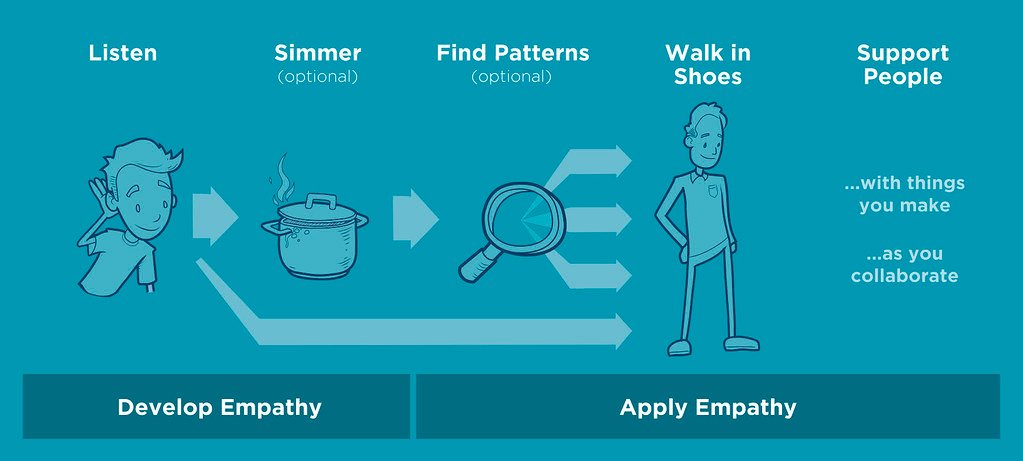In a world where virtual connections have become the norm, mastering the art of remote work is essential. As we navigate through the challenges of working from home, one skill stands out as a game-changer: emotional intelligence. While it may seem like an intangible concept, emotional intelligence can be harnessed and sharpened with the help of powerful tools. These tools not only enable us to understand and manage our own emotions but also empower us to build stronger relationships and foster a positive work environment, even from a distance. So, if you’re ready to unlock the full potential of emotional intelligence in your remote work journey, join us as we explore the transformative tools that will revolutionize the way you connect, collaborate, and thrive in the virtual realm.
Table of Contents
- Understanding Emotional Intelligence in Remote Work
- Developing Self-Awareness and Self-Management Skills
- Building Empathy and Social Awareness in a Virtual Environment
- Enhancing Communication and Relationship Management Remotely
- Utilizing Emotional Intelligence Tools for Remote Team Collaboration
- Q&A
- Insights and Conclusions

Understanding Emotional Intelligence in Remote Work
Emotional intelligence plays a crucial role in the success of remote work. In a virtual environment, where face-to-face interactions are limited, the ability to understand and manage emotions becomes even more important. Remote workers need to be self-aware, empathetic, and skilled in building relationships to thrive in this unique work setting.
Here are some key aspects to consider when it comes to emotional intelligence in remote work:
- Self-awareness: Remote workers must have a deep understanding of their own emotions, strengths, and weaknesses. This self-awareness allows them to effectively manage their emotions and make informed decisions, even when working independently.
- Empathy: Without the luxury of face-to-face interactions, remote workers must rely on their ability to empathize with colleagues and clients. Understanding others’ perspectives and emotions helps build trust and fosters effective communication in virtual teams.
- Relationship building: Building strong relationships is essential in remote work. Remote workers should actively engage in virtual team-building activities, foster open communication, and establish connections to create a sense of belonging and camaraderie.
By developing and nurturing emotional intelligence, remote workers can enhance their productivity, collaboration, and overall well-being in the virtual workspace. It is a skill set that not only benefits individuals but also contributes to the success of remote teams and organizations as a whole.

Developing Self-Awareness and Self-Management Skills
Self-awareness and self-management skills are essential for personal growth and success in various aspects of life. By cultivating these skills, individuals can gain a deeper understanding of themselves, their emotions, and their behaviors. This self-awareness allows them to make conscious choices and take control of their actions, leading to improved relationships, increased productivity, and overall well-being.
To develop self-awareness, it is important to engage in introspection and reflection. Taking time to pause and evaluate our thoughts, feelings, and reactions can provide valuable insights into our patterns and tendencies. Journaling or keeping a reflective diary can be a helpful tool in this process. Additionally, seeking feedback from trusted friends, family members, or mentors can offer an external perspective and help identify blind spots.
Once self-awareness is established, self-management skills come into play. These skills involve regulating our emotions, impulses, and behaviors in a way that aligns with our values and goals. Setting clear boundaries, practicing effective communication, and managing stress are all crucial aspects of self-management. Developing a routine or schedule can also aid in managing time and priorities effectively.
In summary, is a continuous journey that requires self-reflection, feedback, and intentional practice. By honing these skills, individuals can enhance their personal and professional lives, fostering growth, resilience, and a greater sense of fulfillment.
Building Empathy and Social Awareness in a Virtual Environment
is a crucial aspect of fostering a compassionate and inclusive online community. In this digital age, where interactions often occur behind screens, it is essential to actively cultivate empathy and social awareness to bridge the gap between individuals and promote understanding.
One effective way to build empathy in a virtual environment is through storytelling. Encouraging individuals to share their personal experiences and perspectives can help others develop a deeper understanding of different cultures, backgrounds, and challenges. By incorporating multimedia elements such as videos, images, and audio recordings, we can create a rich and immersive storytelling experience that engages the senses and evokes emotions.
Another strategy to enhance social awareness is by organizing virtual workshops and discussions. These interactive sessions can cover a wide range of topics, from diversity and inclusion to mental health and social justice. By providing a platform for open dialogue and learning, participants can gain insights into various social issues, challenge their own biases, and develop a greater sense of empathy towards others. Incorporating breakout rooms, polls, and Q&A sessions can further encourage active participation and engagement.
- Encourage storytelling to foster empathy
- Organize virtual workshops and discussions
- Incorporate multimedia elements for a richer experience
- Provide a platform for open dialogue and learning
- Challenge biases and promote understanding
By implementing these strategies, we can create a virtual environment that promotes empathy and social awareness, ultimately leading to a more compassionate and inclusive online community.
Enhancing Communication and Relationship Management Remotely
In today’s digital age, the ability to enhance communication and effectively manage relationships remotely has become more crucial than ever. With the rise of remote work and virtual collaboration, it is essential to adapt and embrace new tools and strategies to foster strong connections and maintain effective communication channels.
One way to enhance communication remotely is by utilizing various communication platforms and tools. From video conferencing software like Zoom and Microsoft Teams to instant messaging apps like Slack and Microsoft Teams, these platforms provide a seamless way to connect with colleagues, clients, and stakeholders. By leveraging these tools, teams can engage in real-time discussions, share ideas, and collaborate on projects, regardless of their physical location.
Additionally, it is important to establish clear communication guidelines and expectations when working remotely. This can be achieved through the use of shared documents and project management tools. By creating a centralized hub for information and updates, teams can stay informed and aligned on project progress, deadlines, and deliverables. Moreover, setting regular check-ins and virtual meetings can help foster a sense of accountability and ensure that everyone is on the same page.
Furthermore, building and maintaining relationships remotely requires a proactive approach. It is crucial to schedule regular one-on-one meetings with team members or clients to discuss progress, address concerns, and provide feedback. Additionally, taking the time to engage in casual conversations and virtual team-building activities can help foster a sense of camaraderie and strengthen relationships. By actively investing in relationship management, even from a distance, teams can create a positive and collaborative work environment.
In conclusion, is essential in today’s digital landscape. By leveraging communication platforms, establishing clear guidelines, and actively investing in relationship building, teams can overcome the challenges of remote work and foster strong connections that drive success.
Utilizing Emotional Intelligence Tools for Remote Team Collaboration
Remote team collaboration has become increasingly common in today’s digital age. However, it can be challenging to maintain effective communication and build strong relationships when team members are physically separated. This is where emotional intelligence tools come into play, helping to bridge the gap and foster a sense of connection among remote teams.
One powerful tool for remote team collaboration is active listening. Encouraging team members to actively listen to one another can enhance understanding and empathy. This can be achieved by using techniques such as paraphrasing, summarizing, and asking clarifying questions. By practicing active listening, team members can better understand each other’s perspectives and work together more harmoniously.
Another valuable emotional intelligence tool for remote team collaboration is the use of non-verbal cues. While physical presence may be absent in remote settings, non-verbal cues can still be conveyed through video calls and instant messaging. Encouraging team members to pay attention to facial expressions, body language, and tone of voice can help to interpret emotions and intentions accurately. This can prevent misunderstandings and promote effective communication within the team.
- Active listening
- Non-verbal cues
- Empathy building exercises
- Regular check-ins and feedback sessions
- Virtual team-building activities
By utilizing emotional intelligence tools like active listening and non-verbal cues, remote teams can enhance their collaboration and build stronger relationships. Incorporating empathy-building exercises, regular check-ins, and feedback sessions can further foster a sense of trust and understanding. Additionally, engaging in virtual team-building activities can help remote team members connect on a personal level, strengthening their bond and improving overall collaboration.
Q&A
How can emotional intelligence tools benefit remote work?
Emotional intelligence tools can benefit remote work by helping individuals understand and manage their emotions, as well as effectively communicate and collaborate with colleagues. These tools can enhance self-awareness, empathy, and relationship-building skills, leading to improved productivity and well-being in a remote work environment.
What are some popular emotional intelligence tools for remote work?
Some popular emotional intelligence tools for remote work include apps like Moodnotes, which helps individuals track and reflect on their emotions, and platforms like Slack or Microsoft Teams, which facilitate effective communication and collaboration among remote teams. Additionally, mindfulness and meditation apps like Headspace or Calm can also contribute to emotional intelligence development.
How can remote workers enhance their self-awareness using emotional intelligence tools?
Remote workers can enhance their self-awareness using emotional intelligence tools by regularly checking in with their emotions and reflecting on their triggers and responses. Tools like journaling apps or mood trackers can help individuals identify patterns and gain a deeper understanding of their emotional states, leading to better self-management and decision-making.
How can emotional intelligence tools improve remote team collaboration?
Emotional intelligence tools can improve remote team collaboration by fostering empathy and understanding among team members. Tools that encourage virtual team-building activities, such as icebreaker games or virtual coffee chats, can help remote workers build stronger relationships and create a sense of camaraderie, leading to more effective collaboration and problem-solving.
Can emotional intelligence tools help remote workers manage stress?
Yes, emotional intelligence tools can help remote workers manage stress by providing techniques and resources for stress reduction and relaxation. Mindfulness apps, for example, offer guided meditations and breathing exercises that can help individuals reduce anxiety and improve focus, ultimately enhancing their ability to cope with stress in a remote work setting.
How can emotional intelligence tools contribute to remote workers’ well-being?
Emotional intelligence tools can contribute to remote workers’ well-being by promoting self-care and mental health. These tools can provide resources for managing work-life balance, setting boundaries, and practicing self-compassion. By prioritizing emotional well-being, remote workers can maintain a healthier and more fulfilling work experience.
Insights and Conclusions
As we navigate the ever-evolving landscape of remote work, one thing remains constant: the need for emotional intelligence. In this article, we have explored the power of emotional intelligence tools and how they can be harnessed to enhance our virtual work experiences.
From the moment we wake up and log into our virtual offices, to the final virtual meeting of the day, emotional intelligence tools serve as our guiding compass. They enable us to understand and manage our own emotions, while also empathizing with the emotions of our colleagues. Through the power of emotional intelligence, we can foster stronger connections, build trust, and create a supportive virtual work environment.
By utilizing tools such as self-awareness exercises, mindfulness practices, and active listening techniques, we can cultivate a deeper understanding of ourselves and those around us. These tools empower us to communicate effectively, resolve conflicts, and adapt to the challenges that remote work presents.
In the realm of remote work, where face-to-face interactions are limited, emotional intelligence becomes even more crucial. It allows us to bridge the physical distance and connect on a deeper level, fostering a sense of camaraderie and collaboration. With emotional intelligence as our ally, we can overcome the barriers of remote work and build strong, resilient teams.
So, as we embark on this remote work journey, let us not forget the power of emotional intelligence. Let us embrace these tools, integrate them into our daily routines, and watch as they transform our virtual work experiences. Together, we can create a remote work environment that thrives on empathy, understanding, and emotional intelligence.
As an affiliate, my content may feature links to products I personally use and recommend. By taking action, like subscribing or making a purchase, you’ll be supporting my work and fueling my taco cravings at the same time. Win-win, right?
Want to read more? Check out our Affiliate Disclosure page.